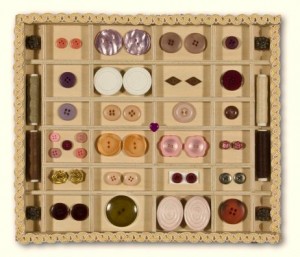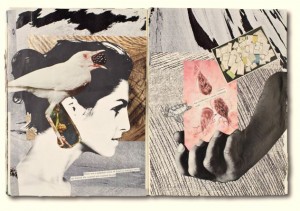A Blessing over Progesterone
Every day I say a blessing in Hebrew over my medication: “Blessed are You, O Lord our God, who has kept us, preserved us, and brought us to this time.” That blessing is traditionally said at the beginnings of holidays, on the eating of new kinds of fruit, and at any joyous occasion at which Jews want to heighten their sense of gratitude by becoming mindful of the singularity of the moment and the precariousness of the lives that have brought us to it. It is not said on the taking of medication; it is specifically not to be said over daily events, for which there are different blessings; and it is never said over a disease.
The medications I take — progesterone tablets, which I swallow whole, and sweet circles of estrogen that I dissolve under my tongue — are synthetic versions of the powerful hormones that naturally define and regulate many of the physiological characteristics of normal female bodies. I don’t have a normal female body. Born without the capacity to produce more than trace amounts of female hormones, for decades my body instead has produced testosterone, masculinizing my face, bones, muscle, hair, and skin. Though there are few aspects of my physical form unravaged by testosterone’s effects, thanks to my medication, those effects are diminishing. For the first time in my life, when I look in the mirror, I see someone who has begun to resemble — me.
I never thought I would see myself in the mirror. I never thought I would hold the means to become myself in my hands, that I would taste it dissolving under my tongue. Every day that I take this medication brings me slowly — very slowly, for there is so much to change and my body is so reluctant after all these years — closer to being the person I have always paradoxically wished to become and known myself to be.
At a stage in life — middle age — when many face the facts of mortality, I am experiencing rebirth — or at least, re-adolescence. This perhaps is only fair, since I spent so much of my life as a ghost, haunting a body that didn’t feel like mine. Rather than embodying my identity, my body erased me, proved that I didn’t, couldn’t, exist. Now, every day, my body and I move closer toward belonging to each other.
This transformation is more than physical. As my body learns to metabolize and distribute fat according to female rather than male patterns, I am learning to live and to be alive. The sophistications accumulated over four and a half decades, the blasé attitudes, the taken-for-granted mechanics of daily life have all fallen away. Consumed by the ravenous insecurities of adolescence, I am shy, awkward, always verging on the inappropriate, a maelstrom of feeling and need, fear and excitement. The first times such identity-forming growth spurts happened, I was an infant, then an adolescent, too young and too caught up in the painful processes of becoming to register them as miracles. I have watched these processes as a parent, but I never expected — I had given up hope and was perhaps too foolish to fear — that one day I would be watching myself learn to walk and talk again, to say hello to grown-ups, to order in restaurants, to shop for clothes, to make friends. All this has become new again. Going to work, riding a subway, making a business call — each experience has become an adventure, uncomfortable, unpredictable, brimming with emotion and discovery.
But this newness is only the beginning of the blessings my illness has brought me. While I hid in the shell of my pretreatment body — a body that, though monstrous to me, was accepted as normal by those around me — I felt I stood outside the human species, a species heartbreakingly beautiful and dauntingly strange, composed of creatures who belonged to and with each other. I loved humanity from afar, passionately but impotently, giving little of myself, because I had no real self to give. And, honestly, what could I know of love, when my every act and word presumed that I would be instantly rejected by anyone who saw through the shell of my maleness to the unrealized creature squirming within? My self was a tissue of terrors and lies, an automated, reflexive cowardice perfected as a child. If love is based on authenticity, I was incapable of it, for I had never lived a day, a moment, as my true self.
And so it has come as a profound shock to discover, at the time of my greatest vulnerability, that I am surrounded by love. As I have become known to those around me — people from whom I had always hidden — I have been met again and again with compassion, acceptance, tenderness, a generosity of spirit that seems to have no limits. A few have embodied my worst nightmares of rejection. But my overwhelming experience has been to find myself in relationship to the finest, most loving human beings I can imagine. And, because I am once again at that awkward age, when every discovery breeds a new insecurity, a new challenge, a new possibility of failure, I feel dwarfed among these grown-up souls for whom loving and giving are as inevitable as breathing. Is it too late for me to learn to follow their examples? It is far too late to be asking such a question, but it is still too soon to answer. All I know is I am filled with love, too much love, love straining the cramped circumference within which I have always lived. Perhaps this problem is the ultimate blessing. What, I wonder, will I ever do with all this love?
Every day brings me closer to becoming the person who not only can but must answer. And so, every day, when I take the medication that is making this possible, I say the blessing that registers the wonder and privilege of being, the awe and responsibility of becoming: Baruch atah Adoshem, Elokeinu melech ha-olam, shehechiyanu, v’kiyemanu, v’higeyanu, la-zman ha-zeh.
This essay is an excerpt from Through the Door of Life: A Jewish Journey Between Genders by Joy Ladin, published by The University of Wisconsin Press.
Join us in New York for a celebration of this new book, Monday, March 19, at the JCC in Manhattan.
![[the current issue of ZEEK]](../../image/2/100/0/5/uploads/leftistethicistgraphic-52842c6a.png)
- 5000 Pages of Zeek
- Founded in 2001, Zeek was the first Jewish online magazine, and we have over 5000 pages online to prove it, all available free of charge. Read more in the Archive.
More articles in
Faith and Practice
- To-Do List for the Social Justice Movement: Cultivate Compassion, Emphasize Connections & Mourn Losses (Don’t Just Celebrate Triumphs)
- Inside the Looking Glass: Writing My Way Through Two Very Different Jewish Journeys
- What Is Mine? Finding Humbleness, Not Entitlement, in Shmita
- Engaging With the Days of Awe: A Personal Writing Ritual in Five Questions
- The Internet Confessional Goes to the Goats



